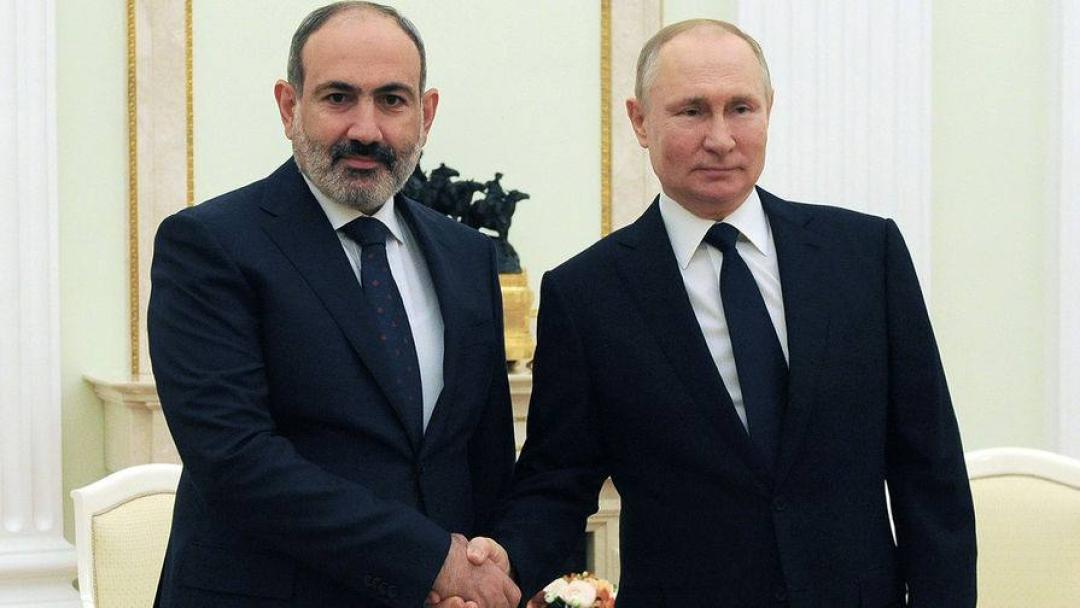
Nagorno-Karabakh: Pashinyan-Putin meeting; Azerbaijan ready to receive UNHCR mission

On 7 July, Armenia’s acting Prime Minister Nikol Pashinyan met with Russian President Vladimir Putin to discuss the situation in Nagorno-Karabakh, the deployment of Russian troops in the region, and the bilateral ties.
The Kremlin spokesperson Vladimir Peskov was asked to comment on recent Armenian mass media reports. These alleged that the leaders of the two countries could consider options for deploying Russian peacekeepers on the Armenian border with Azerbaijan and sign an agreement to that end. "The Armenia mass media reports do not correspond to reality," he stressed. “There will be a talk with Pashinyan, and then the president and the prime minister will continue the communication in a format of a luncheon. This is important, and in fact, is the first foreign visit of Pashinyan after the victory in the parliamentary elections, after quite a confident, convincing victory,” he added.
The Russian ambassador to Armenia Sergey Kopyrkin unveiled more details about the meeting, saying that the two parties would be “checking hours” aimed at the development and deepening of the bilateral relations. “The leaders will discuss what they consider necessary. Of course, the security issues will be discussed, given the current situation… they will [also] exchange views on preserving our political dialogue dynamics, and will discuss the relations in economic and humanitarian fields.” In this context the diplomat added that there is one more important issue which could be discussed during the Putin-Pashinyan meeting. Next year Armenia and Russia mark the 30th anniversary of the establishment of the bilateral diplomatic relations, as well as the 25th anniversary of the signing of the Treaty on Friendship, Cooperation and Mutual Help and according to Kopyrkin this would be another topic of discussion.
Kopyrkin also underlined that the substantive talks on expanding the presence of Russian border guards in disputed sections of the Armenian-Azerbaijani border. “Yes, discussions are underway over this issue on how to expand that presence. I think everything will be decided based on ensuring Armenia’s security, stability in the border and the interests of the implementation of the agreements, which have been reached at [a] trilateral format,” he said.
The chairman of the Armenian parliament’s committee on foreign relations Ruben Rubinyan commented on the statements of the Collective Security Treaty Organization (CSTO) Secretary General Stanislav Zas that the organisation wouldn’t intervene in the border tensions between Armenia and Azerbaijan (Caucasus Watch reported). Rubinyan described the statement as “weird.” “The CSTO is obliged to not only react to a direct aggression or hostilities but also to threats to a CSTO member state’s territorial integrity, sovereignty and security. I believe nobody can dispute the fact that the existing situation on our borders fully corresponds to Article 2. We will continue to work with our CSTO partners in this direction and I think that representatives of our relevant agency will be in touch with our partners in the coming days,” Rubinyan said. The secretary of Armenia’s Security Council Armen Grigoryan spoke with Zas by phone on 5 July. He was cited by his office as expressing concern over a Belarusian official’s comments and saying that the border standoff is not a mere “incident” because Azerbaijan is occupying Armenian territory in an attempt to annex it.
In the meantime, the Azerbaijani authorities reached an agreement with the United Nations High Commissioner for Refugees (UNHCR) to dispatch a mission to the conflict-affected regions in Nagorno-Karabakh. “In general, in connection with the implementation of humanitarian missions we would like to emphasise that Azerbaijan, guided by the principles of international law, in particular the principle of state sovereignty, is ready to accept international missions on its territory. In this regard, we expect the organisation to provide specific information on the dispatch of the UNHCR mission to our liberated territories,” read the statement of Azerbaijan’s Ministry of Foreign Affairs.
See Also


Simonyan: “Armenia Should Trade with Turkey and Azerbaijan Instead of Closing Borders”

Mirzoyan Meets US Deputy Assistant Secretary Joshua Huck

Azerbaijani President Holds Talks with UAE and German Business Delegations on Economic Cooperation

Grigoryan Confirms Armenia’s Readiness to Dissolve OSCE Minsk Group Upon Peace Treaty Signing

